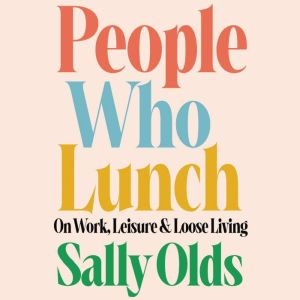

People Who Lunch
On Work, Leisure, and Loose Living
Author: Sally Olds
Narrator: Christine Lakin
Unabridged: 5 hr 20 min
Format: Digital Audiobook Download
Publisher: Little, Brown Spark
Published: 02/06/2024
Synopsis
What do post‑work politics, the cult of crypto, clubbing, and polyamory have in common? All have spawned thriving subcultures united in their rejection of the patriarchal capitalist order: from wage labor, to the reign of the shareholder class over capital markets, to romantic relationships that feel like contractual arrangements to be negotiated, and more.
People Who Lunch is about hating work and needing to work, intimacy and technology, labor and leisure, and the challenge of living our ideals in a less than ideal world. In it, Sally Olds brings her “unsparing scrutiny to bear…as she grapples with the sense of entrapment in the machinery of capitalism and remorseless logic of commodification” (ABC Arts).
In one essay, Olds’s brief flirtation with post-monogamy forces her to confront the emotional prison of the “open relationship”; in another, a multi-hour viewing of a critically acclaimed performance art piece highlights how even the highest forms of culture exist to convert pleasure into capital.
In the end, her forays into these colorful worlds betray a deep irony: escaping a system built on the exchange of wage labor is, quite simply, a lot of work.

